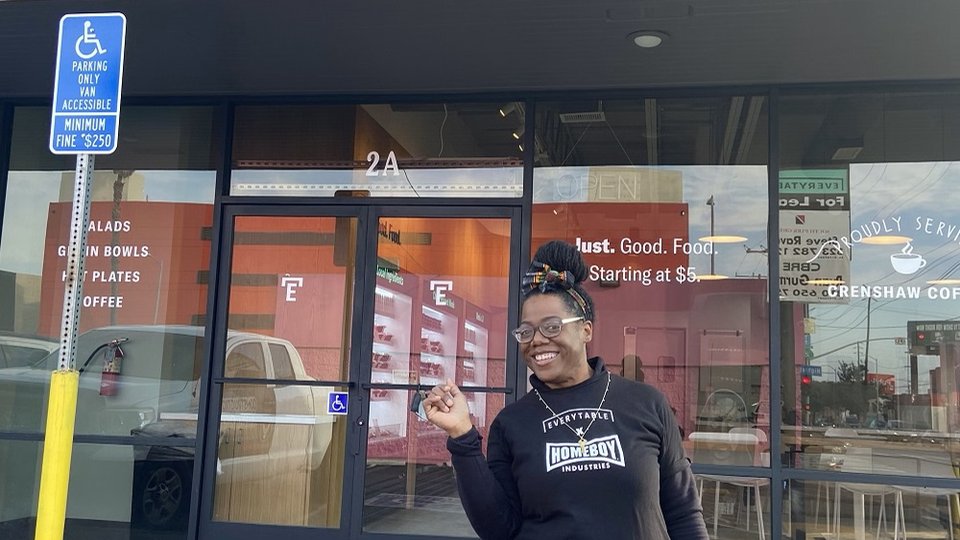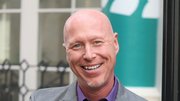Operations
Can Everytable's new franchise model cut racial inequality?
Everytable CEO Sam Polk discusses how his latest operations idea — the Social Equity Franchise —removes barriers to business ownership for Black and Latinx entrepreneurs.

January 29, 2021 by Cherryh Cansler — Editor, FastCasual.com
Everytable was on the cusp of the subscription food model in 2016 when it launched using a commissary kitchen model to serve urban food deserts in Los Angeles. It was also one of the first brands to base its menu prices on the neighborhoods in which it serves.
"Our variable pricing model is based on the average income of a specific neighborhood," CEO CEO Sam Polk said in an interview with FastCasual. "Many communities we serve are food deserts with little or no access to nutritious food. By pricing our meals according to the neighborhood, our guests don't have to travel outside of their neighborhood to avoid cheap and unhealthy fast food."
Meals start at $4.50 with most ranging between $5 and $7.
"Compare those prices with most meal subscription plans where meals start at $10-$12 each and increase from there," he said. "What's more, Everytable's meals are made with the same fresh and high-quality ingredients as our meals offered in our storefronts and are never frozen. Lastly, our guests can modify their order every week and pause, or cancel at any time."
Everytable has grown to 10 company-owned locations — each supplied by a central kitchen in Los Angeles — offering healthy food options to customers seeking dine-in, grab-and-go or delivery options. The chain also has Everytable Smartfridges around the city.
Polk's latest move involves franchising, but just as he did when creating Everytable, he's doing things a little differently.
What is a Social Equity Franchise?
In an effort to cut down on racial inequality in the areas in which Everytable serves, Polk and his team created the Social Equity Franchise, which means they choose an employee, usually a general manager, to franchise a specific location. That employee makes no investment but receives training as well as an annual salary of $40,000 until the store is profitable, which Polk predicted would take a few years.
"We believe that this program will help us get to the root cause of food deserts, which is racial inequality," Polk said. "Studies find that at our current pace, it will take African American families over 228 years to reach parity with the average wealth of white families."
Everytable's Social Equity Franchise Program, however, removes barriers to business ownership for Black and Latinx entrepreneurs with the aim to eliminate racial wealth disparities and expand access to healthy food.
"With capital in the hands of historically oppressed people and communities, racial justice and equality become possible," Polk said.
Dorcia Whitebrake, a general manager of a location in Hollywood, was the person to take part in the social equity franchise program — funded via $4.5 million from W.K. Kellogg Foundation, Annenberg Foundation, the California Wellness Foundation and Dignity Health.
"This is such an amazing opportunity and one for which I am so very grateful," said Whitebrake, who up until January when her store opened had always worked three jobs to provide for her family while also earning two associate's degrees. "While at first I was a bit reluctant, with Sam's persistence and belief in my abilities, I am confident that with the support of everyone at Everytable, my new business will be wonderfully successful. I'm incredibly excited to begin this new chapter as a business owner and entrepreneur."
It hasn't come without challenges, however, which included wrapping her mind around that believing it was real.
"Now that I'm getting settled into my new Everytable, I am confident that I will succeed and look forward to perhaps opening more Everytable stores in coming years," Whitebrake said.
Although it's early, Polk said the business was doing so well that he plans to open 40 additional Social Equity Franchise locations in Southern California within the next few years. The program is seeking entrepreneurs of color, who belong to a marginalized group or community and who exhibit:
- Demonstrated entrepreneurial experience or initiative.
- Restaurant and/or retail experience.
- Mission- and community-driven.
- Leadership skills and experience.
- Aspirations of being a hands-on owner/operator.
- A commitment of up to one year of Everytable University training before ownership
As the chain builds out its new franchise model, it will also continue to grow its company-owned locations. In fact, it recently received $16 million in a Series B round to fund its next phase of strategic growth (outside of the Social Equity Franchise program) as well as developing institutional partnerships and to support its subscription/delivery program.












